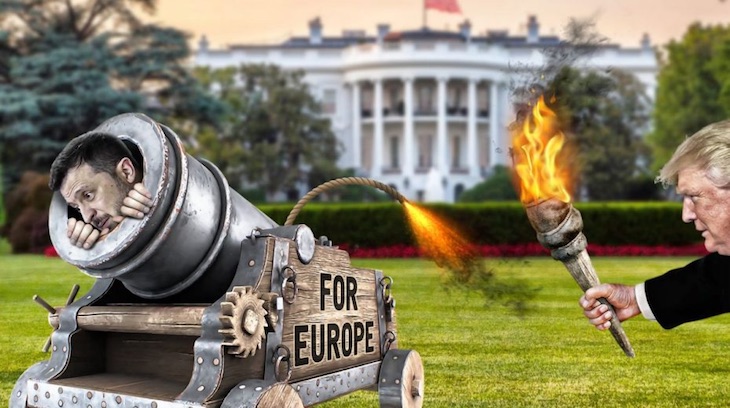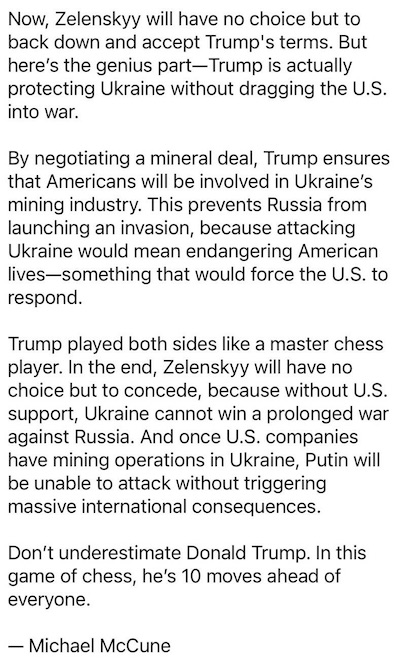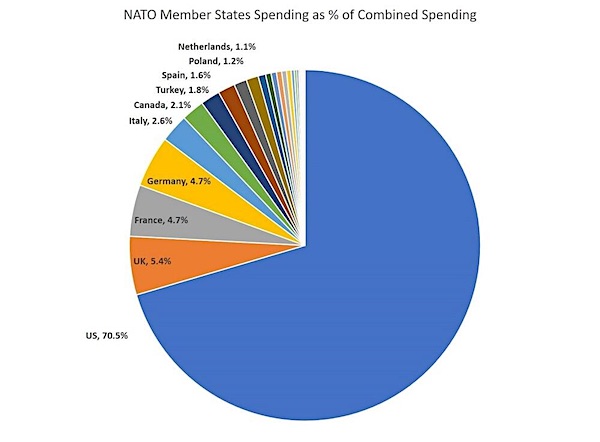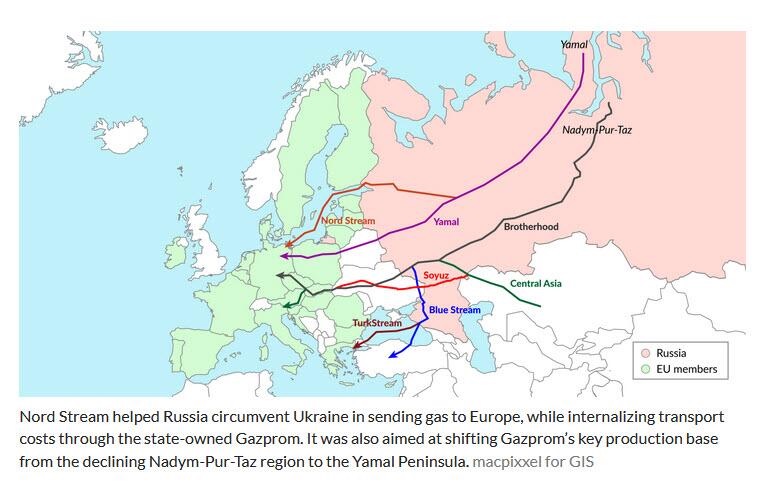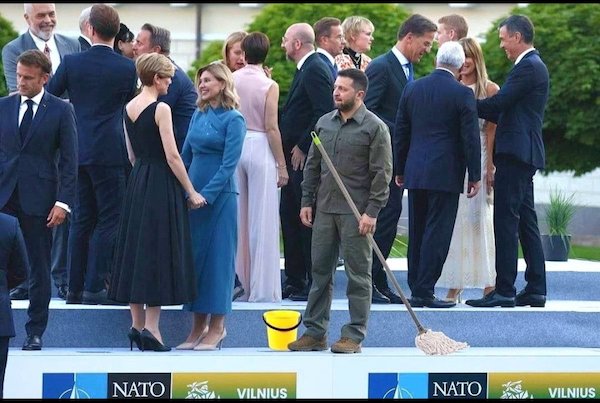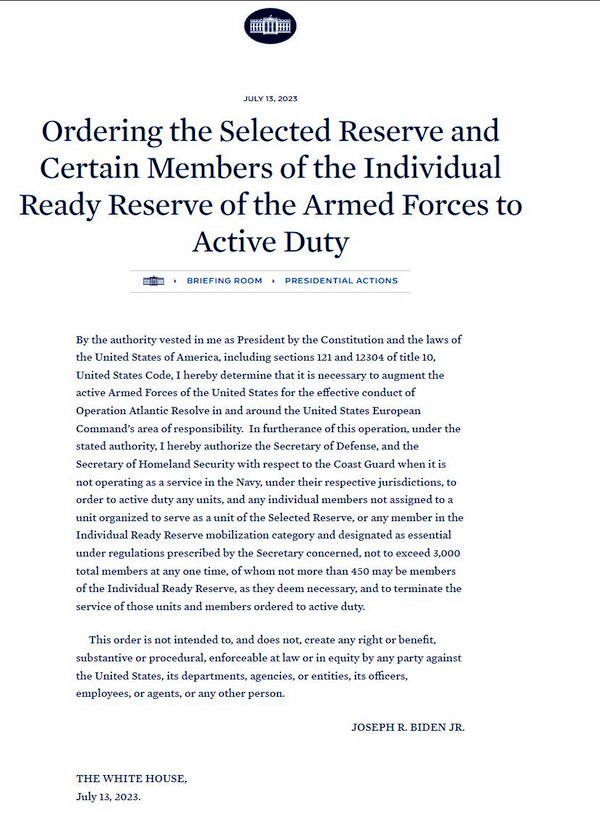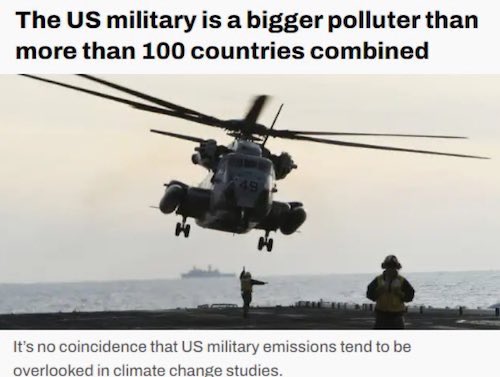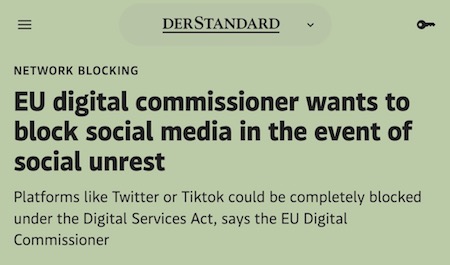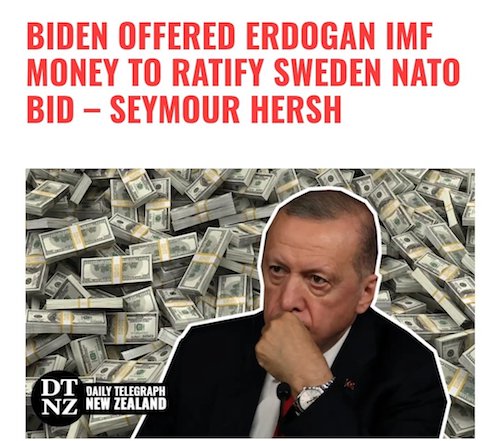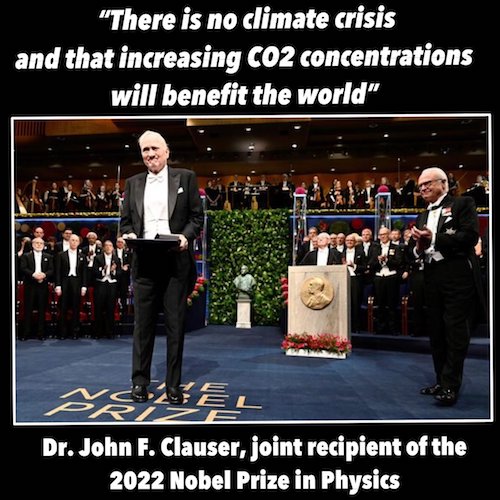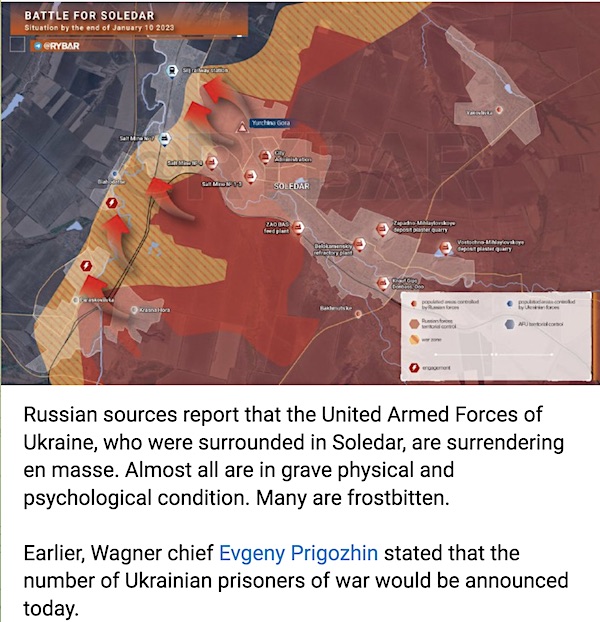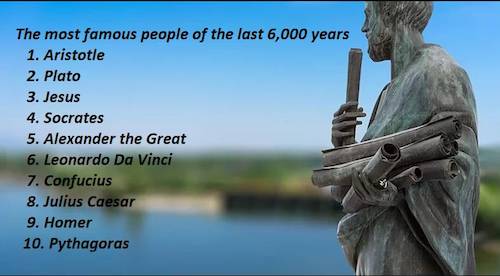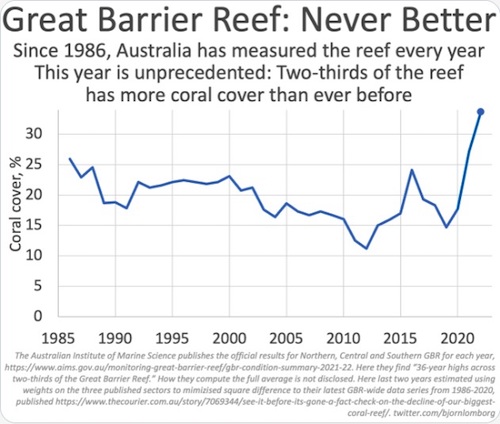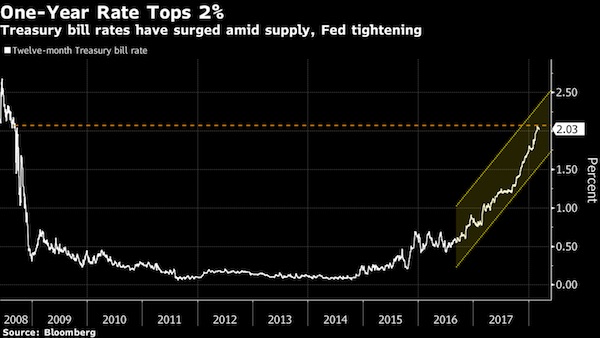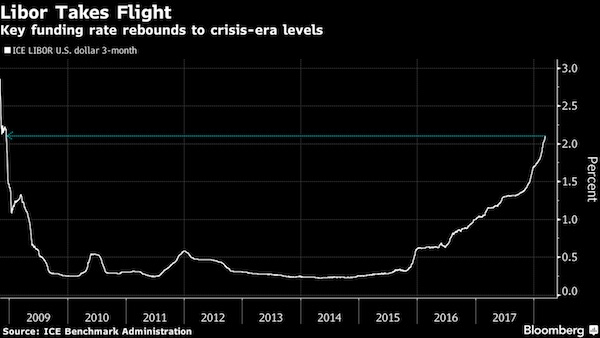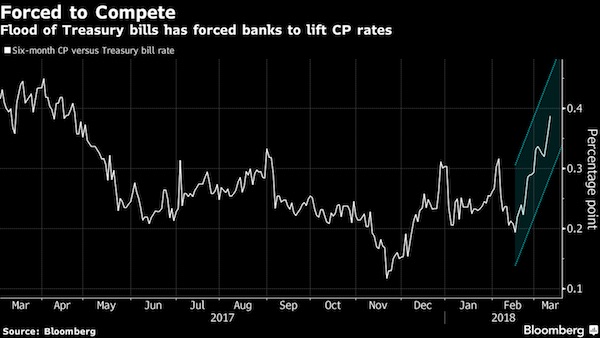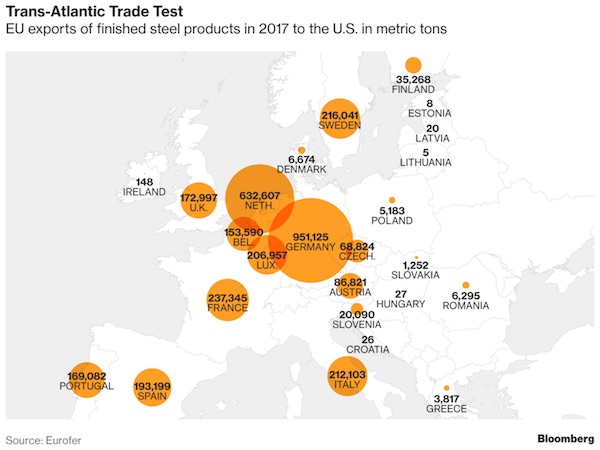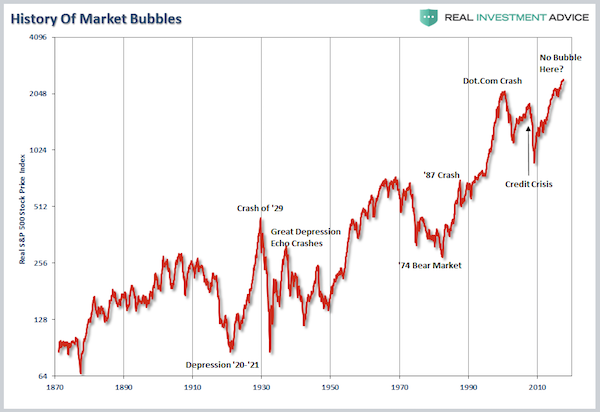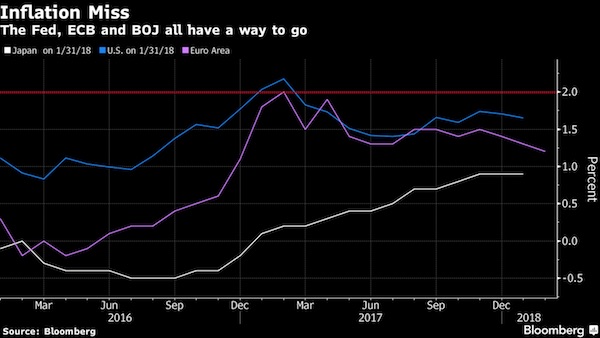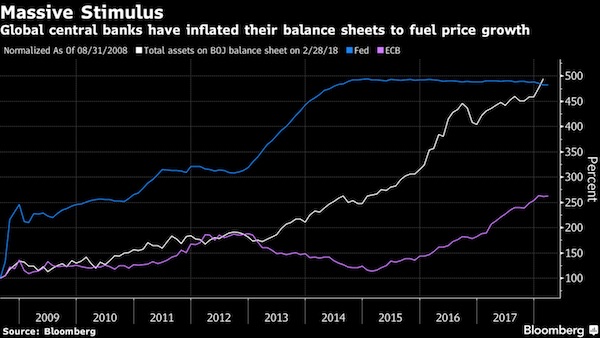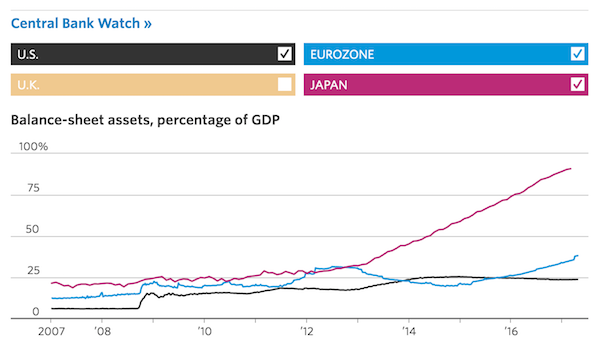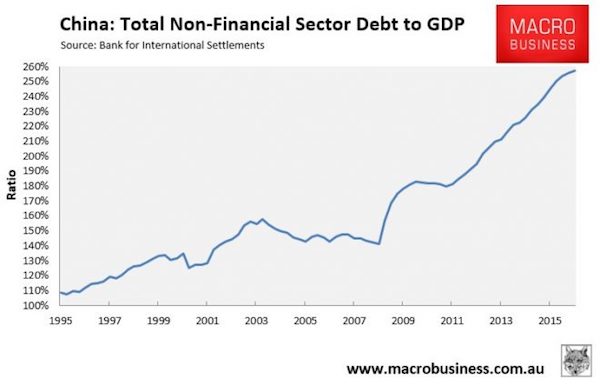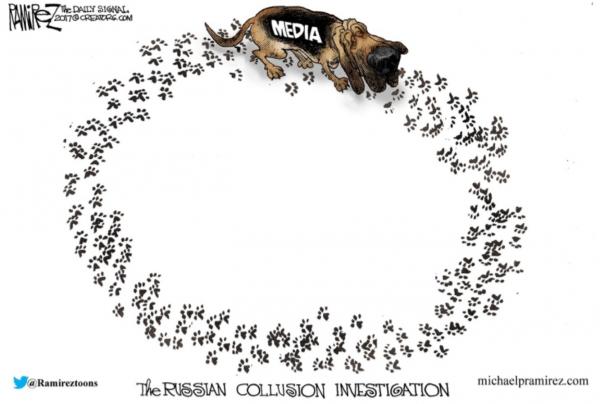
John Martin �The Seventh Plague of Egypt 1823

The Smithsonian museums, and their tunnel network, are right between the White House, and the Capitol building/Supreme Court/Library of Congress.
Trump decided to conduct a review of the Smithsonian operation, the day after he took federal control of DC and deployed the NG…… pic.twitter.com/LaqMe6D9dn
— Clandestine (@WarClandestine) August 13, 2025
Did it occur to anyone that perhaps Trump is federalizing DC because indictments of Democrat leaders are about to come down and he knows the violent left will want to turn DC streets into a war zone?
— Bill Mitchell (@mitchellvii) August 12, 2025
Observe the timeline:
YESTERDAY: Trump takes federal control of the DC police for 30 days, deploys the NG to secure DC, SecDef has unnamed “specialized military units” on standby.
TODAY: Trump notifies Smithsonian he will be reviewing their collections.
This means that Trump… pic.twitter.com/UxxCmhAKax
— Clandestine (@WarClandestine) August 12, 2025
https://twitter.com/MAGAVoice/status/1955315649082954158
Comey
https://twitter.com/nicksortor/status/1955587369572409831
https://twitter.com/patel_patriot/status/1955434673552888015
Creek
The water in Washington, D.C., is not going to clear up until you get the pigs out of the creek. pic.twitter.com/sc2wkEUL54
— John Kennedy (@SenJohnKennedy) August 12, 2025
Trump's team misclassifies a payment to Stormy Daniels: Trump gets convicted of 34 felonies.
Hillary Clinton's team pays for the creation of the Steele dossier (which causes immeasurable damage to the country), and misclassifies the payment: $8,000 fine.pic.twitter.com/tKyU0SO1pB
— MAZE (@mazemoore) August 12, 2025

Here’s the Michelle Shocked video I couldn’t find yesterday. Someone found it on a Russian site. Still an excellent song. Arrangement? Oh well…


On our way to Anchorage, a few longish articles are included today. Can’t always avoid them.

“No Zelensky, no Brussels, no problem: Here’s how Putin and Trump’s Alaska power move will play out…”
• Both Sides Want The Putin-Trump Alaska Summit To Succeed (Suslov)
On Friday, Vladimir Putin and Donald Trump will meet in Alaska. This will be the first full-scale Russia-US summit since June 2021 in Geneva, and the first official visit by a Russian president to American soil since Dmitry Medvedev’s trip in 2010 at the height of the “reset.” It will also be the first time the leaders of Russia and the US have met in Alaska, the closest US state to Russia, separated only by the narrow Bering Strait, and once part of the Russian Empire. The symbolism is obvious: as far as possible from Ukraine and Western Europe, but as close as possible to Russia. And neither Zelensky nor the EU’s top brass will be in the room. The message could not be clearer – Moscow and Washington will make the key decisions on Ukraine, then inform others later. As Trump has said, “they hold all the cards.”
The Alaska summit marks a sharp departure from the Biden years, when even the idea of such a meeting was unthinkable and Washington’s priority was isolating Russia. Now, not only will Putin travel to Alaska, but Trump is already planning a return visit to Russia. Moderate optimism surrounds the meeting. Summits of this type are rarely held “just to talk”; they usually cap a long process of behind-the-scenes negotiations. The idea for this one emerged after three hours of talks in Moscow on August 6 between Putin and Trump’s special envoy, Steve Witkoff. Russian presidential aide Yuri Ushakov described Washington’s offer as “very acceptable.” That suggests Putin and Trump will arrive in Alaska with a preliminary deal – or at least a framework for a truce – already in place.
Why Trump needs this
Trump has good reason to want the summit to succeed. His effort to squeeze Moscow by pushing China and India to stop buying Russian oil has backfired badly. Far from isolating Russia, it triggered the worst US-India crisis in 25 years and drove New Delhi even closer to Moscow. It also encouraged a thaw between India and China, with Prime Minister Narendra Modi now set to attend the SCO summit in Tianjin. BRICS, which Trump has openly vowed to weaken, has only grown more cohesive. The Alaska summit is Trump’s chance to escape the trap he built for himself – trying to pressure Moscow through Beijing and New Delhi – and to show results on Ukraine that he can sell as a diplomatic victory. For Moscow, a successful summit would be a powerful demonstration that talk of “isolation” is obsolete – even in the West. It would cement Russia’s standing with the “global majority” and highlight Western Europe’s diminished influence.The transatlantic split would widen, weakening Brussels’ claim to be Russia’s toughest opponent. Most importantly, Washington today has little real leverage over Russia, especially on Ukraine. If the summit yields a joint Russian–American vision for a truce or settlement, it will inevitably reflect Moscow’s position more than Kiev’s or Brussels’. And if the Western Europeans try to derail it, the US could pull the plug on all aid to Ukraine – including intelligence support – accelerating Kiev’s defeat. Not everyone in Russia is cheering. Many prominent “Z”-aligned war correspondents see the war as unfinished and oppose any truce. But they have been asked to stick to the official line. If the Alaska meeting produces a deal, they will be expected to back it – or at least use “cooling” language for their audiences. The Kremlin is betting it can manage this dissent.
Western Europe, for its part, will be watching from the sidelines. Its leaders are “scrambling” for scraps of information via secondary channels. The optics will underline a humiliating reality: for the first time in almost a century, decisions about Europe’s security will be made without the likes of Italy, France and Germany in the room. The location hints at other agenda items. Arctic economic cooperation, largely frozen since 2014, could be revived. Both sides stand to gain from joint development in the far north, and a deal here would be politically symbolic – proof that the two countries can work together despite the baggage of the last decade. Arms control will also be on the table. Moscow’s recent decision to end its unilateral moratorium on deploying intermediate-range missiles was almost certainly timed to influence the talks. Strategic stability after the New START Treaty expires in February 2026 will be a central concern.
If Alaska delivers, it could reshape the conflict in Ukraine and the broader Russia-US relationship. A joint settlement plan would marginalize Kiev and Brussels, shift the diplomatic center of gravity back to Moscow and Washington, and reopen channels for cooperation on global issues – from the Arctic to arms control. If it fails – if Trump bends to last-minute EU pressure – Moscow will continue fighting, confident that US involvement will fade. Either way, Russia’s position is stronger than it was two years ago. What’s different now is that the two powers with “all the cards” are finally back at the same table – and Western Europe is on the outside looking in.

“…the April 2022 Ukrainian neo-Nazi massacre of civilians who accepted Russian aid in a Kiev suburb after the withdrawal of Russian forces..”
• Ukraine and NATO’s Playbook of Staged Attacks Blamed on Russia (Sp.)
The Russian MoD’s warning about a plot to stage a fake incident in Chuguyev, Kharkov region to sabotage the upcoming Putin-Trump meeting in Alaska “positions Russia to expose the West and Zelensky’s deception if it occurs, undermining their credibility,” veteran geopolitical analyst Angelo Giuliano told Sputnik. It’s definitely not the first time Kiev and its backers have stooped to such tactics. “The Bucha lie, crafted by Ukraine and the West, derailed 2022 peace talks by framing Russia for war crimes,” Giuliano recalled, referencing the April 2022 Ukrainian neo-Nazi massacre of civilians who accepted Russian aid in a Kiev suburb after the withdrawal of Russian forces, which galvanized the West for long, costly proxy war against Moscow.
That was just the beginning, according to Giuliano, who also cited:
1. the constant shelling of the Zaporozhye Nuclear Power Plant, threatening to unleash a Chernobyl-like disaster on Europe, and blaming Russia (even though Russian forces control the plant).
2. the July 2022 bombing of a prison housing Ukrainian PoWs in a Russian-controlled area of the DPR, killing dozens, and designed to “silence Azov prisoners, preventing exposure of Western-backed neo-Nazis in Russian courts.” Also blamed on Russia, ironically.
3. the September 2022 bombing of the Nord Stream natural gas pipeline network, severing a major Russian energy artery with Germany. Sy Hersh revealed that the operation was carried out by US Navy divers with assistance from Norway. Russia still blamed.
“Despite the West’s propaganda machine—evident in Zaporozhye and Nord Stream—Russia’s readiness to counter this deception could limit its impact, though Western bias might still disrupt the Alaska summit. The Bucha playbook remains a potent tool for sabotage,” Giuliano warned.

“The only chance he has to stay in power and to continue looting the aid from the West is for this war to continue…”
• Zelensky’s Life Depends On War Continuing – Human Rights Lawyer (RT)
Ukraine’s Vladimir Zelensky does not want peace because he can only stay in power as long as the conflict with Russia continues, US human rights lawyer Dan Kovalik has told RT. The Russian Defense Ministry warned on Tuesday that Kiev is preparing a false flag attack on civilians in Kharkov Region in an attempt to derail Friday’s summit between Russian President Vladimir Putin and his US counterpart, Donald Trump. During the talks in Anchorage, Alaska, the two leaders are expected to discuss the possible settlement of the Ukraine conflict and bilateral issues. Zelensky has not been invited to the summit. Kovalik said in an interview on Tuesday that he “suspected Ukraine would try to do something provocative to break up any possibility of a deal in Alaska. I mean Zelensky, his whole political life and maybe his real life depend on this war continuing.”
Moscow was right to warn the international community about Kiev’s plans, as “this will immunize people against a false-flag attack in the sense that they will be ready for it and know who really did it when, if it comes. God forbid it does come,” he suggested. The Ukrainian authorities “clearly do not want it to end… they do not want peace,” the human rights lawyer said. “Look, Zelensky has not had proper constitutional authority… for over a year. His term ran out over a year ago. He has refused to have elections. He knows his popularity is in decline. The only chance he has to stay in power and to continue looting the aid from the West is for this war to continue,” Kovalik added.
Zelensky said on Tuesday that he considered the fact that Putin was meeting Trump on US soil a “personal victory” for the Russian leader. The US president earlier described the Alaska summit as a “feel-out meeting” that will help him determine whether the Ukraine conflict can be settled. Moscow expects that the talks between Putin and Trump will “give an impulse to the normalization of bilateral relations” with Washington.

“Expired” Zelensky and his team will stop at nothing to derail the upcoming summit..”
• Doomed Zelensky Desperate to Sabotage Putin-Trump Summit – Expert (Sp.)
Ukraine’s Zelensky is painfully aware that being sidelined from the upcoming Putin-Trump dialogue on Ukraine will deliver him a knockout blow, said Vietnamese international relations expert Dr. Hoang Giang.
“Expired” Zelensky and his team will stop at nothing to derail the upcoming summit between Russian President Vladimir Putin and US President Donald Trump, or at the very least, cast a shadow over the talks, Dr. Hoang Giang told Sputnik. Hungarian Prime Minister Viktor Orban put it perfectly when he said that “If you’re not at the negotiating table, you’re on the menu,” the pundit explained, adding: “That is something Zelensky and his backers simply cannot accept.”Intelligence from multiple sources points to a planned provocation by the Ukraine regime designed to sabotage the Russia-US summit planned for Friday, Russia’s Defense Ministry has stated. The Ukrainian Armed Forces could deliver a provocative strike using UAVs and missiles against one of the densely populated residential neighborhoods of Chuguyev in the Kharkov region [near the Russian border], causing significant civilian casualties. The imported Western journalists are expected to ‘immediately document’ the incident. Provocations in other settlements under the control of the Kiev regime are also possible, noted the MoD.

The “Digital Services Act” and this “European Media Freedom Act” sound great, beneficial even, but have one goal only: control.
• New EU Media “Freedom Law” Allows for Journalist Arrests (RTN)
The European Union’s “European Media Freedom Act” became binding law across all member states on August 8, but behind its name lies a set of provisions that could restrict the very freedoms it claims to safeguard. Alongside language about protecting reporters, the regulation authorizes arrests, sanctions, and surveillance of journalists whenever authorities say it serves an “overriding reason in the general interest.” Ursula von der Leyen, President of the European Commission, hailed the legislation’s arrival on social media, saying, “A free and independent press is an essential pillar of our democracy. With our European Media Freedom Act, we want to improve their protection. This allows journalists to continue their important work safely and without disruption or intimidation.”
Although the law outlines protections such as prohibiting spyware or coercion to expose sources, those assurances are undercut by built-in loopholes. Governments can bypass them if their actions are allowed under national or EU law and deemed proportionate to a vaguely defined “general interest.” That permission extends to intrusive surveillance technologies in cases tied to crimes carrying a maximum prison term of three years or more, a list that ranges from terrorism and human trafficking to offenses labeled as “racism and xenophobia.”
The legislation also orders each country to maintain registers of media owners and addresses. It targets so-called “disinformation,” accusing some media outlets of manipulating the single market to spread falsehoods. Large online platforms are portrayed as choke points for access to news, blamed for fueling polarization. To confront this, the EU wants tighter cooperation between national regulators, overseen by a European Media Services Board made up of member state regulators and a Commission representative. Although labeled independent, the board’s secretariat is run by the Commission, giving it an inside track on the decision-making process.
Another element of the act involves pushing “trustworthy media” and reinforcing state broadcasters through transparent appointment processes and stable public funding. Annual gatherings between EU officials, internet companies, media representatives, and NGOs are encouraged to assess how disinformation initiatives are being carried out. Despite being sold as a shield for press freedom, the structure of the act gives Brussels and national authorities the ability to decide which voices remain active and which can be silenced. By allowing arrests, surveillance, and tighter state involvement in the media landscape, it risks turning from a safeguard into a tool for control.

” Orban announced last month that he was rejecting the budget proposal, calling it “built on the logic of war.”
• EU Plotting ‘Regime Change’ In Hungary – Moscow (RT)
The European Commission is plotting to help oust Hungarian Prime Minister Viktor Orban over what it considers his overly independent policy, according to Russia’s Foreign Intelligence Service (SVR). The Hungarian leader has repeatedly clashed with Brussels in recent years, opposing EU military aid to Ukraine and Kiev’s bid to join the bloc. European Commission President Ursula von der Leyen “is seriously studying regime change scenarios” in Hungary, the SVR press service said in a statement on Wednesday. Brussels intends to bring Peter Magyar, leader of the Hungarian opposition Tisza Party – seen as “loyal to globalist elites” and “the main candidate for the post of Prime Minister” – to power in the 2026 parliamentary elections, “if not sooner,” according to the SVR.
Significant “administrative, media and lobbying resources” are being deployed to support Magyar through “German party funds, the European People’s Party and a number of Norwegian NGOs,” the Russian intelligence service said. Kiev, which has been “offended” by Orban’s opposition to Ukraine attempting to join the EU, is doing the “dirty work” and destabilizing the home situation in Hungary via its intelligence services and local Ukrainian diaspora, it added. Last month, Orban accused Kiev of working to influence Hungary’s upcoming parliamentary elections. The European Commission is “outraged” by Orban’s attempts to “pursue independent policy” and his efforts to influence EU decision-making, the SVR stated.
Hungary’s recent decision to veto the new seven-year EU budget project, which Budapest believes is designed for the militarization of Europe and preparation for war with Moscow, has become the last straw that made the euro-bureaucrats lose their patience. Orban announced last month that he was rejecting the budget proposal, calling it “built on the logic of war.” “Billions for Ukraine, crumbs for farmers and development. Their goal: defeat Russia, install liberal allies, and expand their realm of influence,” he wrote on X. Moscow has repeatedly denied claims that it aims to attack NATO or EU countries, and has accused Western European leaders of pursuing “uncontrolled militarization” to prepare for war with Russia.

Sundance still has his own view:
“The Patel’s, Bondi’s, Solomon’s and Hannity’s then play this game of pretend. Packaging the corruption evidence as accountability hopium and selling it to the addicted battered conservatives.”
• Kash Patel Sends John Solomon a Prior Whistleblower Report (CTH)
FBI Director Kash Patel sends John Solomon a declassified whistleblower report, showing how a prior House Intelligence Committee staffer blew the whistle on then HPSCI ranking member Adam Schiff, who was giving the staff instructions to leak fabricated intelligence reports on Trump-Russia to smear President Donald Trump in 2017 and 2018. According to the release, the FBI eventually received and investigated the whistleblower claims; then in 2023, sent the information to the Merrick Garland/Lisa Monaco DOJ, who took no action because the claim was now beyond the statute of limitations. Read those dates carefully, because what this report from Kash Patel and John Solomon actually outlines is something we have all been very frustrated with.
As Solomon now notes, … “The alleged leaks fall outside the statute of limitations for prosecution on most legal theories, but the revelations nevertheless come at a sensitive time for Schiff“.. At the time of the Whistleblower report, the information to the FBI and DOJ would have been evidence that could have prosecuted Adam Schiff. However, now the information is limited to just providing I-told-you-so’s. There are a couple of really frustrating aspects to this, and the pattern is transparently obvious. The FBI and DOJ from 2017 to 2023, under both Donald Trump and Joe Biden’s administration, played the silo game of control of evidence. They did nothing with the evidence until the statute of limitations had tolled, which then provides Main Justice with the justification for doing nothing.
In 2025, understanding the public is insanely frustrated with the lack of accountability, the pretending game is now deployed by the FBI under Kash Patel, through John Solomon, to the broadcast venue of Sean Hannity. At the end of this clickbait circle-jerk is nothing. Again, no accountability, but a bunch of controlled information operatives saying, “Well, let’s see what the DOJ does with this now.” A pox on all their houses. There is no doubt in my mind this is a clear example of why the DC system uses special counsels (Mueller, Durham, et al) purposefully to create “ongoing investigations” as capture nets for information/evidence control. “It’s under investigation, and we don’t speak about ongoing investigations.” In real time, from 2019 to 2020, I was providing this type of evidence from within the silo system to John Durham and Bill Aldenberg who were designated information managers.
So, here's the basic construct of how the theatrical performance of DC is scripted and played for the hopium audience.
Evidence delivered from outside DC cannot be used by those who are charged with investigating corruption within DC.
Evidence delivered from inside DC, goes… https://t.co/EyVRApxcpx
— TheLastRefuge (@TheLastRefuge2) August 12, 2025
In my naiveté’, as I initially opened these doors, I thought some form of accountability would be possible, because the evidence was direct, irrefutable and without denial. However, once Aldenberg and Durham clearly said they could only act on evidence they ‘discovered’ themselves, and they could not act on evidence provided by “others” because that would make the “evidence political,” I quickly realized this was all going to amount to nothing. Now, we are looking in hindsight at evidence from inside the system, provided to these investigators by participants inside the system, yet they also did nothing with it at the time it held value. So, here’s the basic construct of how the DC game is played. Evidence delivered from outside DC cannot be used by those who are charged with investigating corruption within DC.
Evidence delivered from inside DC, goes into the system of “ongoing investigations” (special counsels) until its usefulness is exhausted by the clock-ticking. If the risk of accountability remains, the special counsels are extended until that accountability clock has expired. Once the accountability clock has expired, if another party comes along (Kash) and releases that evidence (Solomon), the value only exists insofar as it generates clickbait income (Just News), column inches and punditry talking points (Sean Hannity) for the DC proletariat. The Patel’s, Bondi’s, Solomon’s and Hannity’s then play this game of pretend. Packaging the corruption evidence as accountability hopium and selling it to the addicted battered conservatives. Insert vote. Pull lever. Get hopium pellet. Wash. Rinse. Repeat. Who is continuing to buy this game?

“Washington, DC’s 2024 murder rate was 27.54 per 100,000 people. That is higher than cities like Bogota (15.1), Mexico City (10.6), Islamabad (9.2), and Lima (7.6). It is astronomical when compared to the capitals of close allies like Paris (1.64), London (1.1), and Madrid (0.96).”
• Trump Takeover Renews Questions Over D.C. Crime Data (Turley)
Washington, D.C. is a city that has long spun statistics to the point that they become more fable than fact. It reaffirms the famous view that there are “lies, damned lies, and statistics.” The line is the perfect warning to the unwary about politicians citing statistics. The quote itself is widely misrepresented as the work of Mark Twain or British Prime Minister Benjamin Disraeli, so it seems nothing can be trusted when it comes to statistics, not even quotes on statistics. That question is again at the heart of a debate following the announcement of President Donald Trump that he would be sending the National Guard into Washington and taking temporary control of the D.C. police. In response, Mayor Muriel Bowser and other democrats denounced the plan and claimed that violent crime is at a 30-year low after dropping by 26% so far in 2025.
However, those statistics were recently challenged after a scandal involving allegations of suppressing crime reports to artificially reduce crime rate statistics. The media is reporting the reduction claim despite only recently questioning those statistics. The MPD in July suspended Michael Pulliam, police commander for the Adams Morgan neighborhood, for allegedly manipulating crime numbers. D.C. Fraternal Order of Police chairman Gregg Pemberton accused police officials of pressuring officers to falsify statistics to reduce crime rates: “When our members respond to the scene of a felony offense where there is a victim reporting that a felony occurred, inevitably there will be a lieutenant or a captain that will show up on that scene and direct those members to take a report for a lesser offense.
So, instead of taking a report for a shooting or a stabbing or a carjacking, they will order that officer to take a report for a theft or an injured person to the hospital or a felony assault, which is not the same type of classification.” Pemberton said that the MPD’s statistics were “preposterous… There’s absolutely no way crime could be down 28%. Last year, they suggested that it went down 34%.” Even accepting some of these statistics, it is hardly anything to celebrate. For example, Washington, DC’s 2024 murder rate was 27.54 per 100,00 people. That is higher than cities like Bogota (15.1), Mexico City (10.6), Islamabad (9.2), and Lima (7.6). It is astronomical when compared to the capitals of close allies like Paris (1.64), London (1.1), and Madrid (0.96).
There are good-faith reasons to oppose this move. I am not convinced that the National Guard deployment is warranted or likely to have a meaningful impact on crime. However, President Trump is within his rights to order the deployment. He may also take temporary control of the police and can notify Congress if he wants to extend that period to 30 days. D.C. is a federal enclave and is thus different from other cities. There is no governor involved in such orders in Washington, which remain under the jurisdiction of the federal government. What is also clear is that crime remains very high in this city and the reliability of the D.C. crime statistics can be legitimately questioned as we look for solutions for public safety.

“The goal, Richman told the FBI, was “to correct stories critical of Comey, the FBI and to shape future press coverage” outside of the bureau’s official press office…”
• Newly Released FBI Files Uncover Comey’s Plot Against Trump (Margolis)
Newly released FBI documents paint a damning picture of James Comey’s role in a coordinated intelligence operation against Donald Trump, an effort we know that Barack Obama ordered and that John Brennan, James Clapper, and a network of loyal operatives carried out. The “Arctic Haze” documents reveal that the FBI not only knew that sensitive information was leaking to the media, but it was also orchestrating the leaks. At the center of this effort was Columbia University law professor Daniel Richman, whom Comey personally arranged for the FBI to hire and grant top security clearance. Richman acted as Comey’s go-between with reporters, helping to shape the Russian collusion hoax and polish Comey’s public image. Hard evidence now backs what many have long suspected: the willful weaponization of U.S. intelligence against a duly elected president.
“The FBI concluded numerous legacy news media stories that crafted the false Russia collusion narrative contained illegally leaked classified intelligence but failed to definitively identify the leakers,” reports Just the News. “But agents did force a stunning admission that ex-FBI Director James Comey used a special conduit to the Pulitzer Prize-winning New York Times in his bid to polish his image and push for a special prosecutor to take down President Donald Trump.”Columbia University law professor Daniel Richman admitted to agents in interviews he routinely communicated on behalf of Comey, his longtime friend, with Times reporter Michael Schmidt, whose work was among the newspaper’s 2018 Pulitzer-winning stories on Russian election interference.
The goal, Richman told the FBI, was “to correct stories critical of Comey, the FBI and to shape future press coverage” outside of the bureau’s official press office, according to internal FBI memos that current Director Kash Patel delivered to Congress this week. Just the News notes that the media publicly quoted Richman in news stories as a Comey advocate. What’s new, however, is that “he admitted to agents, who were part of the FBI’s Arctic Haze classified leaks inquiry, that Comey gave him access to what turned out to be highly classified information up to the SCI level and sometimes provided information to reporters on an anonymous basis.” According to the FBI memos, Richman claimed he didn’t think he had passed classified information to reporters but admitted he couldn’t be “100%” sure. In fact, he told agents he was only confident “with a discount” that he hadn’t told New York Times reporter Michael Schmidt about the classified material.
That’s not exactly the kind of airtight denial you’d expect from someone with top security clearance. Earlier this week, we learned that a veteran career intelligence officer, who spent over a decade working for Democrats on the House Intelligence Committee, repeatedly warned the FBI starting in 2017 that then-Rep. Adam Schiff had personally signed off on leaking classified information to smear President Trump during the Russiagate hoax. Despite this and other evidence pointing to potential leaks, the Justice Department shockingly chose not to press charges against Comey, his inner circle, or even now-Sen. Adam Schiff. Their excuse? They just couldn’t be certain who leaked what and when. Convenient.

“Danchenko told them the Steele dossier was full of fabricated nonsense. However, to keep the revelation of the dossier presented “as nonsense” hidden, the FBI then hired Danchenko as a confidential human source, technically shielding him from being questioned or exposed…”
• FBI Offered Chris Steele $1 Million to Substantiate Dossier; He Never Did (CTH)
I have been asked to recap some of my research into cited formats of what I believe to be criminal conduct, with specific statutes against them. This is the third.mDNI Tulsi Gabbard is not a lawyer. While I may be wrong, I find Tulsi Gabbard to be a patriot. Mrs. Gabbard is focused on providing evidence to the DOJ that essentially forces action. I support Tulsi Gabbard’s efforts.
In 2022, the legal case brought by prosecutor John Durham against Chris Steele’s primary sub source, Igor Danchenko, was predicated on the notion that Christopher Steele’s primary source for his dossier willfully and intentionally lied to the FBI. Therefore, according to Durham’s legal theory, Danchenko was guilty of purposefully misleading FBI investigators assigned to the Trump-Russia/”Crossfire Hurricane” investigation. Every intellectually honest person knew the FBI were not duped by Danchenko, and later records proved Danchenko told them the Steele dossier was full of fabricated nonsense. However, to keep the revelation of the dossier presented “as nonsense” hidden, the FBI then hired Danchenko as a confidential human source, technically shielding him from being questioned or exposed. The FBI decision to hire Danchenko was to keep the fraudulent Steele Dossier useful for their Trump targeting operation. After all, the Trump surveillance warrants were dependent on it.
The pretending by Durham highlighted two things: (1) Durham was protecting the corrupt DOJ and FBI institutions by not investigating any government action; and yet, (2) Durham was simultaneously exposing corrupt FBI and DOJ action through his Danchenko court filings. FBI supervisory analyst Brian Auten testified in court that Hillary Clinton’s contracted opposition researcher, Christopher Steele – hired by Fusion GPS to dig up dirt on Donald Trump, was offered up to $1 million by the FBI in early October 2016, if Chris Steele could prove the claims within the Trump dirt dossier he authored. Steele was never paid the money, because he could not prove the claims within the dossier, nor would he originally give up the name of the primary source for the information, Igor Danchenko.
However, despite the FBI knowing the dossier could not be proved, validated or verified, later that same month, October 21, 2016, they used the dossier as evidence to support a Title-1 FISA surveillance warrant against former Trump campaign aide, Carter Page. The FBI offered Chris Steele $1 million to ‘prove it.’ Chris Steele could not ‘prove it.’ The FBI used the dossier anyway to get the warrant. The details provided by Durham proved the researched outline we delivered in 2018. The FBI knew the Steele dossier was junk, yet they used it in lieu of the mandatory ‘Woods File’ to seek an all-inclusive secret search warrant against the Trump campaign. Carter Page was a tool for the fraudulent search warrant, the FBI knew Carter Page from previous work he had done for them as an informant. However, to get the warrant they needed to accuse Page of being an asset of a foreign government – so they did.
The Steele Dossier was used as manufactured evidence to support the FISA application. The FBI goal was to create a legal mechanism putting everyone in/around Donald Trump under surveillance. This was the “insurance policy” as described by FBI agent Peter Strzok. The FBI had been conducting unlawful political surveillance against Donald Trump throughout the 2016 campaign, the FISA warrant was used as the legal basis to make the previous and future surveillance legal. The FBI knew the dossier was junk, the FBI didn’t care – they needed it to create a fraudulent search warrant. The FBI knew Carter Page was not a Russian asset, the FBI didn’t care – they needed him to get to Trump. The FBI goal was always to conduct political surveillance against Donald Trump.
(Via CNN) – Shortly before the 2016 election, the FBI offered retired British spy Christopher Steele “up to $1 million” to prove the explosive allegations in his dossier about Donald Trump, a senior FBI analyst testified Tuesday. The cash offer was made during an October 2016 meeting between Steele and several top FBI officials who were trying to corroborate Steele’s claims that the Trump campaign was colluding with Russia to win the election. FBI supervisory analyst Brian Auten testified that Steele never got the money because he could not “prove the allegations.” Auten also said Steele refused to provide the names of any of his sources during that meeting, and that Steele didn’t give the FBI anything during that meeting that corroborated the claims in his explosive dossier.
Auten was testifying at the criminal trial of Igor Danchenko, a primary source for Steele’s dossier, who is being prosecuted by special counsel John Durham. Danchenko has pleaded not guilty to lying to the FBI. CNN previously reported that the FBI reimbursed some expenses for Steele, who had been an FBI informant. Durham, a Trump-era prosecutor who is looking for misconduct in the FBI’s Trump-Russia investigation, has used some of the proceedings Tuesday to criticize the FBI’s handling of some of the early steps in the Russia probe. Durham handled many of the in-court arguments on Tuesday and personally questioned Auten on the witness stand – a rare move for a special counsel and former US attorney. (read more)
Offering $1 million to a source to provide evidence is not a decision made by a supervisory special agent. The authorization to spend up to $1 million for evidence is a decision made by the Director or Deputy Director of the FBI. Follow the timeline:
• Steele offered $1 million to prove the dossier in early October 2016. He cannot.
• FBI uses dossier in late October for a FISA warrant against Trump campaign.
• Dossier source Igor Danchenko interviewed by FBI in January 2017. Tells FBI dossier is junk.
• The FBI then interviews Carter Page five times, March 9, 10, 16, 30 and 31, 2017.
• The FBI then hired Danchenko in March 2017, just before renewing the FISA they now know is based on junk.
• April 2, 2017, the FBI renew the FISA warrant for the 2nd time.
• May 2017 Robert Mueller appointed to cover up all of the DOJ/FBI corruption that existed in the Trump targeting.
• June 2017 Robert Mueller interviews Danchenko, then Mueller renews the FISA.
• February 2019, Bill Barr enters as Attorney General.
• April 2019 Robert Mueller completes investigation.
• May 2019, Bill Barr appoints Durham just to look into things. Immediately then begs Trump not to declassify any documents. Trump writes executive order giving Bill Barr ability to review and declassify documents.
• October 2020, Bill Barr officially (and quietly), makes John Durham a special counsel. We don’t find out until December (after the Nov. election).
• October 2020, FBI drops Igor Danchenko as paid informant.Put it all together and you see the continuum.
(1) Donald Trump was being targeted by a corrupt DOJ and FBI.
(2) Robert Mueller was installed in May 2017 to cover up the targeting.
(3) When Mueller is nearing his completion, Bill Barr steps in to mitigate institutional damage from 1 and 2.
(4) Barr maintains damage control and installs Durham.
(5) Durham takes over the coverup operation from October 2020 (Danchenko safe to exit) through today.Main Justice kept a bag over Danchenko until they needed a scapegoat, created by Durham, to sell a narrative that Main Justice was duped. John Durham charged Danchenko (working outside govt) with lying to the FBI while simultaneously avoiding drawing attention to the FBI/DOJ officials (inside govt) who knew Danchenko was lying and were willfully blind to it in order to continue attacking and investigating President Donald Trump. James Comey, Robert Mueller, Bill Barr, John Durham, the Mar-a-Lago raid… it’s all one long continuum of the same targeting and coverup operation. Bill Barr was the Bondo application, and John Durham was the spray paint. The entire system is corrupt.

“A poll from earlier this year showed AOC leading Schumer by double digits in a hypothetical primary…”
• This Could Be the End of Chuck Schumer’s Political Career (Margolis)
The political winds are shifting dramatically in New York, and no figure embodies this change more starkly than Chuck Schumer. Once an unshakable pillar of Democratic power, Schumer now finds himself grappling with a crisis of confidence unlike any he’s faced in two decades. This isn’t just a battle over approval numbers; it’s a stark referendum on the future of the Democratic Party itself. As younger, more radical voices rise to challenge the old guard, the question becomes: Is Schumer’s era ending, and if so, what comes next? Schumer has hit a historic low in favorability, according to a recent Siena College poll — the worst showing of his career dating back two decades. Once comfortably positioned as the Democratic strongman in the Empire State, Schumer now finds himself under fierce fire not just from political adversaries but from within his own party.
His approval rating stands at a mere 38% favorable, with half of New Yorkers viewing him unfavorably. Even more striking, Schumer is underwater among New York City voters for the first time ever in Siena’s polling, at 39% favorable to 46% unfavorable. The tide really turned against Schumer after his controversial decision in March to allow a vote on a continuing resolution to fund the government and avoid a shutdown. This move angered radical leftist Democrats who derided it as a betrayal. That decision cast a long shadow over Schumer’s leadership and raised serious questions about whether his era is concluding. The fissures within the Democratic Party have become increasingly visible. Leftist voices have started rallying behind Rep. Alexandria Ocasio-Cortez as a potential challenger to Schumer’s Senate seat in 2028.
A poll from earlier this year showed AOC leading Schumer by double digits in a hypothetical primary, signaling a deep appetite among Democratic voters for younger, more confrontational leadership. His favorability with Democrats has dropped from 55% in June to 49%, while unfavorable ratings among party members rose to 39%. This erosion of support reflects a widening gap between Schumer’s pragmatic approach and the ambitions of a more aggressive, younger generation of Democrats unwilling to yield to Republicans or Donald Trump. The big question is whether Schumer will seek re-election or make way for fresher faces representing the party’s emerging priorities.
His declining approval ratings suggest that if he does run again, it won’t be without a stern primary challenge, and I can’t see him running in a primary that he’s at risk of losing. Indeed, in an era where firebrands like AOC capture the spirit of the party’s activist wing, the political script in New York is fast rewriting itself. Ultimately, Schumer’s political plunge reflects a broader crisis of confidence within Democratic ranks. Once a master of Senate backroom deals and partisan maneuvering, his struggles highlight the party’s deepening identity crisis. Will Democrats double down on the establishment’s old-school power politics, or will they hand the reins to the younger, more radical voices demanding aggressive confrontation? The answer will shape not only Schumer’s fate but the future trajectory of the party itself.

Predictable. Will they pass on their traveling bills to the taxpayer?
• Texas Democrats Will Return Home, and the New Map Will Be Approved (Margolis)
The war over Texas’ congressional maps is nearly over, and conservatives emerged victorious. ABC13 Eyewitness News reports that multiple sources have confirmed House Democrats are finally coming back to Texas. They haven’t said exactly when, but apparently, they think they’ve achieved some grand victory by killing the first special session and grabbing a few headlines about the mid-decade redistricting fight. In reality, all they’ve done is waste taxpayer money, embarrass themselves on the national stage, and guarantee that the new map will still pass, just without the drama next time. It is unclear which day they will be in Austin at the Capitol, but they stress that they will push for Hill Country flooding relief to be the priority. nThis comes as the House went another session without a quorum on Tuesday, with just 95 members present for the second day in a row.
Texas House Speaker Dustin Burrows said that assuming there is no quorum on Friday, the session will end, and a new one will begin. Hours later, the Senate actually passed a new map that benefits Republicans ahead of the 2026 midterm elections. It’s the same map that passed out of committee in the House and precipitated more than 50 House Democrats to break quorum. Democrats in the Senate walked out in protest, but a quorum remained. Sources told ABC13 that Senate Democrats will not break quorum. It’s not all that surprising. The Democratic Party, the worst offenders when it comes to gerrymandering, throwing a conniption over Republican redistricting, was the epitome of hypocrisy, and to top that off, Texas Democrats fled to the heavily gerrymandered state of Illinois: a stunt so tone-deaf that it practically wrote its own punchline. Democrats were going to cave eventually; it was only a matter of when.
Something tells me that when Gov. Greg Abbott vowed to keep calling special sessions until the new map was passed, they knew they were beat. “This could literally last years because in Texas, I’m authorized to call a special session every thirty days. It lasts thirty days,” he told Fox News host Shannon Bream on Monday, promising to keep calling session after session relentlessly. “As soon as this one is over, I’m gonna call another one, then another one, then another one, then another one.” When it comes to gerrymandering, Democrats are the undisputed champions. Four of the five most gerrymandered states, Illinois, California, New Jersey, and New York, are all under full Democratic control.
Their congressional maps hand Democrats far more seats than their actual vote totals warrant. Illinois, for instance, gives Democrats a staggering 27-point edge in representation, even though they only won 55% of the presidential vote. California and New Jersey aren’t far behind, each showing double-digit advantages for Democrats. The only state making the list with a significant Republican presence is North Carolina, with a 20-point GOP edge. But Texas, often slammed as the GOP’s gerrymandering poster child, actually has a smaller partisan gap. Republicans won 56% of the presidential vote and hold 66% of the congressional seats, a 10-point advantage that will grow with the new map, but still pales compared to the distortions cooked up in Democratic bastions.
The facts don’t lie. The worst gerrymanders are in blue states, and that advantage has propped up Democrats even as they lose the national House popular vote. What’s happening in Texas isn’t an attack on democracy; it’s a long-overdue correction. No amount of grandstanding from lawmakers playing hide-and-seek in Illinois will change that reality. Texas Democrats finally realized they were fighting a losing battle. Now the Texas Senate has approved the map, sending it to the State House for final passage, leaving Democrats to grumble about something else.

‘Fired Losers’ = Bolton.
• Trump Rails Against ‘Unfair’ Media Quoting ‘Fired Losers’ (NYP)
President Trump raged against the “unfair” media over their coverage of his high-stakes summit with Russian tyrant Vladimir Putin in Alaska on Friday. “Very unfair media is at work on my meeting with Putin. Constantly quoting fired losers and really dumb people like John Bolton, who just said that, even though the meeting is on American soil,” Trump seethed on Truth Social Wednesday. “‘Putin has already won.’ What’s that all about? We are winning on EVERYTHING. The Fake News is working overtime (No tax on overtime!). If I got Moscow and Leningrad free, as part of the deal with Russia, the Fake News would say that I made a bad deal! But now they’ve been caught,” he added. Leningrad reverted to its pre-Bolshevik name, St. Petersburg, in 1991.
Trump’s anticipated meeting at Joint Base Elmendorf-Richardson with Putin will mark the first time the Russian leader sets foot on US soil in about a decade. It will also be Putin’s first in-person meeting with a US president since he began the brutal invasion of Ukraine in 2022. Since returning to the White House in January, Trump has made ending the bloody war in Ukraine one of his top foreign policy objectives. Over recent months, he has soured on Putin over the brutal Russian drone and missile strikes on Ukrainian civilians. Critics such as Trump’s former national security adviser John Bolton have argued that the president will be welcoming a “rogue leader of a pariah state” into the US and that Putin will attempt to “take advantage” of him.
The Friday summit meeting comes after special envoy Steve Witkoff met with the Russian leader at the Kremlin last week, ahead of Trump’s deadline for Moscow to move toward peace or else the US would work to cut off its oil exports using steep economic penalties. Details about Putin’s exact conditions for bringing about an end to his country’s war are murky and have drawn confusion from European allies. Ukrainian President Volodymyr Zelensky has publicly cast doubt on making significant territorial concessions to Russia and underscored that Ukraine must have a say in any potential deal. The Trump administration is working toward a trilateral summit among Trump, Putin and Zelensky and sees the Alaska meeting as a step toward that goal, according to Vice President JD Vance.
One of Trump’s close allies, NATO Secretary General Mark Rutte, has claimed the president is “testing” Putin and trying to gauge his openness to peace. Secretary of State Marco Rubio similarly implied that Trump is attempting to get a better sense of whether the Russian dictator is open to peace. “The president talked to Putin on the phone three times or four times. Okay. And nothing has come of it — or at least we haven’t gotten to where we want to be,” Rubio told “Sid and Friends in the Morning” on Tuesday.“So the president feels like, ‘Look, I’ve got to look at this guy across the table. I need to see him face-to-face,’” he added. “‘I need to make an assessment by looking at him.’”

“The Democrats are about as popular right now as measles, so democracy is somehow endangered.”
• Hollywood Writers Wage War on Trump (Tim Graham)
The entertainment press found it very important to report that Hollywood thinks President Donald Trump is an authoritarian. This is still somehow considered “news.” Over 2,300 members of the Writers Guild felt compelled to speak out in an open letter because they believe in their “role in a healthy democracy.” In 2024, democracy was healthy and Hollywood’s candidate lost. “Writers Guild of America West PAC [political action committee] Endorses Kamala Harris for President,” they announced. So sad. They can’t get over it. When the Left’s feverishly spinning propaganda machines don’t work, “now, we face an unprecedented, authoritarian assault.” The Democrats are about as popular right now as measles, so democracy is somehow endangered.
“We are members of the Writers Guild of America who speak with one voice to decry the dangerous and escalating attacks on the First Amendment, independent media, and the free press,” the letter read in part. “He has retaliated against publications reporting factually on the White House and threatened broadcasters’ licenses. He regularly calls for the cancellation of news and entertainment television shows that criticize him in late-night and, most recently, ‘The View.’” They complained, “We don’t have a king, we have a president. And the president doesn’t get to pick what’s on television, in movie theaters, on stage, on our bookshelves, or in the news.” Of course not. The kings and queens of Hollywood insist they get to pick what people see, and the “healthy democracy” librarians get to dictate what’s on the public bookshelves. The leftists think “democracy” is healthiest when they are in charge of all “mainstream” messaging.
When it comes to Trump, Hollywood rushed to make hostile movies—for the Cineplex and for TV—asserting the rudest things, like Trump raped his first wife (“The Apprentice” movie). Nobody made a Hunter Biden movie, despite all the wild crack-and-hookers narratives, not to mention Hunter sleeping with his brother’s widow and getting her on drugs. The fundamental fallacy of these “attacks on the First Amendment” arguments is that the First Amendment includes the freedom to attack the “free press”—like asserting liberals lie when they call themselves the “independent media.” They’re partisan operatives. Trump suing news organizations and spurring settlements isn’t authoritarian. This is where you undermine the silly claim of these scriptwriters that leftist “news” outlets are being attacked for “reporting factually.” They don’t lead with facts. They lead with their angry opinions and often unproven accusations.

“The majority holds that when the President refuses to spend funds appropriated by Congress based on policy disagreements, that is merely a statutory violation and raises no constitutional alarm bells.”
• Trump: 1, USAID: 0 – Appeals Court Lets Admin Block Billions In Aid (ZH)
The Trump administration scored a major victory on Wednesday after a US appeals court ruled that they can cut billions of dollars in foreign assistance approved by Congress. In a 2-1 decision, the appellate panel reversed a Washington federal judge who ruled that US officials were violating the Constitution’s separation of powers principles by failing to authorize payments in line with what the legislative branch had allocated. This means that President Trump’s day-one order to dissolve the US Agency for International Development (USAID) and broadly withhold funding from other foreign aid programs can move forward. After the Trump administration cut off foreign aid, two groups of grant recipients sued, claiming a violation of separation of powers.
US District Judge Amir Ali (Canadian-born Biden appointee) ruled in March that the administration must make available foreign assistance that Congress appropriated for FY2024. Ali’s order also required USAID to pay bills owed through Feb. 13 under existing contracts and grants, however that part of the injunction was not on appeal – and substantially all of the owed payments are now complete according to court records. Not so fast Ali! Writing for the majority appellate decision – US Circuit Judge Karen Henderson (Bush appointee) said “The district court erred in granting that relief because the grantees lack a cause of action to press their claims. They may not bring a freestanding constitutional claim if the underlying alleged violation and claimed authority are statutory.”
BREAKING: In a 2-1 decision, the appellate panel REVERSED order that blocked Trump admin from cutting funding to USAID
This ruling is a SIGNIFICANT win in the efforts to dissolve USAID
Biden appointed Judge Florence Pan, dissented pic.twitter.com/c4tkpFwOlD
— Libs of TikTok (@libsoftiktok) August 13, 2025
One judge, US Circuit Judge Florence Pan (Biden appointee) dissented, writing “The majority holds that when the President refuses to spend funds appropriated by Congress based on policy disagreements, that is merely a statutory violation and raises no constitutional alarm bells.” Lauren Bateman, an attorney for consumer advocacy group Public Citizen which represents the suing grant recipients wrote on Wednesday “Today’s decision is a significant setback for the rule of law and risks further erosion of basic separation of powers principles,” adding “We will seek further review from the court, and our lawsuit will continue regardless as we seek permanent relief from the Administration’s unlawful termination of the vast majority of foreign assistance.”

Pieces so long I put them at the bottom of the pile. Still good to refresh the memory.
• The Trump-Putin Meeting: How We Got Here (Connor O’Keeffe)
This Friday, President Trump and Russian President Vladimir Putin are set to sit down together in what will be the first face-to-face meeting between leaders of each country since the war in Ukraine broke out almost three and a half years ago. For many, this is a long-overdue step towards bringing this war to an end. For others, it marks the dangerous and unnecessary return of a policy of “appeasement” that’s sure to prompt more invasions from Putin and other leaders that the US government does not back. There certainly will be plenty of debate in the coming days over the wisdom and likely consequences of this meeting. But, as with anything, the best way to understand both is to look back at how we got here. A lot has been written about the many policy decisions that took place after the USSR fell in 1991, which transformed the Russian government and the Western governments in NATO back into enemies.
Those factors are important for understanding why Putin made the decision to invade Ukraine in early February 2022 and how he was able to get enough of the Russian public on board with the war. But even setting all of that aside, when Putin gave the order for Russian forces to invade Ukrainian territory, he cited three purposes for the move in his address to the Russian people that can help us understand the specific Russian objectives in this campaign. They were to prevent Ukraine from joining NATO, to destroy the far-right Nazi factions within Ukraine, and to protect the people living in the separatist regions of eastern Ukraine. It is certainly possible that none of these reasons was or is genuine. As we Americans should know well, governments frequently use entirely fake justifications to manufacture public acceptance for a war when they think the real reason won’t work.
However, if we look closer at Putin’s actions, we can get a clearer picture of what the Russian leader wanted and, importantly, was willing to settle for. Shortly after the invasion began on February 24, 2022, Ukraine’s President Zelensky attempted to set up an indirect backchannel with Putin. He was able to do so fairly quickly with the help of the Israeli Prime Minister at the time, Naftali Bennet. Thanks to Bennet’s efforts, the two sides began talking. And, exactly two weeks after the tanks had rolled over the border, the Ukrainian and Russian foreign ministers sat down in person in Turkey to see if an agreement could be reached that would put an end to the fighting. A few weeks later, they did reach an agreement. According to officials who were present on both sides and in mediator roles, the Russians agreed to pull all of their forces back to pre-invasion boundaries—in other words, to end the war and give up all the territory they had seized in that first month.
And, in exchange, the Ukrainians agreed not to seek NATO membership. Remember, this isn’t some Russian spin on the Istanbul talks, it’s based on what the Ukrainian negotiators and the German, Israeli, and Turkish officials who were present said happened. So we know that a month into the war, Putin was willing to abandon two of the three stated objectives of his military campaign in exchange for a promise that Ukraine would not join NATO, which suggests that this really is the priority for the Russian regime. He may have even begun to honor his side of the agreement. Putin claims that the sudden massive withdrawal of Russian forces from the areas around Kyiv, a few days after the Istanbul agreement was reached, was actually the first step towards withdrawing the entire invading force. That may be a lie, but the timing does match up.
Regardless, shortly after the talks wrapped up, UK Prime Minister Boris Johnson went to Kyiv, really on behalf of all the top Western military powers in NATO, and convinced the Ukrainians to walk away from the agreement, which they did. It appears that Western governments talked the Ukrainian leaders into continuing the fight by promising heavier weapons and more sophisticated support to help them gain more leverage over the Russians, so future talks could be even more fruitful. Some people in Western governments may have really believed that. But a lot of the rhetoric we saw from American officials when they were talking to the American public or to each other suggests that the true motivations for keeping the war going grew out of a recognition of how lucrative it would be for certain well-connected American companies, a desire to learn more about what tactics and technology is effective in modern conventional war, and a perceived opportunity to “weaken Russia” without the need to spill any American blood.
But regardless of whether their intentions were pure and misguided or deceptive and depraved, American and Western European officials stymied the early peace talks and kept the war going. And fairly quickly, it became frustratingly clear that the Ukrainians would not be able to fight their way to a better negotiating position than they had had in March of 2022. Over that first summer, the “heavier weapons” the US and other Western governments began transferring to the Ukrainians did not push the front line dramatically to the east, as the Ukrainian government seems to have been led to expect. And then, in September, the Russian government formally annexed four oblasts—or provinces—in eastern Ukraine, laying permanent claim to tens of thousands of square miles of territory that it had previously agreed to surrender. Ukraine’s position in future negotiations was already growing weaker.
That said, in November, a month after the Russian annexation, Ukrainian forces successfully used misdirection to recapture the southern city of Kherson and the northern city of Kharkiv. While their position was still weaker than it had been in March, it was still a solid opportunity to transition back to talks. But again, the opportunity was missed. Instead, Western officials and their allies in the media began to generate hype about plans for a massive counteroffensive operation that would mobilize all Ukrainian forces to break through Russian lines and drive Russian forces out of the newly-annexed territory. For months, the coming counteroffensive was used to shoot down any calls to return to the negotiating table. But several independent military experts raised doubts—especially in reaction to the nightmarish battle over the city of Bakhmut—that Ukraine truly had the capability to push the Russian lines way back to the east.
Those concerns really came to a head in early 2023 when a 21-year-old airman named Jack Teixeira leaked evidence that American military and intelligence officials were similarly pessimistic about the operation—for which he was thrown in prison with a sixteen-year sentence. And, sure enough, when the counteroffensive began in the summer of 2023, the Ukrainians struggled to break through Russian minefields and ended up losing more territory than they gained. The counteroffensive was a failure. And yet, the war went on. For the next year, the front lines remained mostly unchanged as the war evolved into a trench-style artillery war of attrition. Ukraine was dealing with a serious shortage of soldiers, which the Russians appeared to have recognized meant time was in their favor.
Then, last summer, the Ukrainians made the surprising decision to pull troops away from the front line to send them north over the border to capture some Russian territory in the so-called Kursk region. While they were met with some initial success, because the Russians had not thought to defend the area heavily, the territory they took was small compared to what the Russians held in Ukraine. And, most consequentially, the transfer of soldiers weakened Ukraine’s already-tenuous standing on the eastern front. Which has meant that, over the last year, Ukraine has been struggling. According to some analysts like retired Colonel Daniel Davis, the Russians have shifted their focus from trying to take more territory to trying to wipe out as many soldiers as possible to exacerbate Ukraine’s manpower problems, which will ensure that, down the road, taking territory will be far easier.
The Russians also didn’t let the lame-duck Biden administration’s provocative and unnecessarily risky decision to help the Ukrainians launch long-range missiles deeper into Russia pull them away from their strong position. So Russian forces now hold a lot of territory, and time is on their side if they wish to take even more territory in the future. And there isn’t much of anything else the NATO governments can do with weapons transfers or economic sanctions to change that. If they could, they would have done it already. In other words, the Russians have significantly more leverage over the Ukrainians and their Western backers than they did during those early talks in Turkey a month into the war. Trump has clearly tried to create some pain points against Putin that he can attempt to negotiate away—most notably a massive tariff on India for buying Russian oil. But the disheartening and frustrating fact is that Putin has no real reason to want this war to come to an end right now.
That said, the Russian president did signal that he would be open to stopping the war in exchange for eastern Ukraine. If that proposal is genuine, Trump should seriously try to work out a deal and hope that the boasts he made about deceiving the Iranians with fake negotiations earlier this summer did not destroy his credibility in situations like this. But, regardless of what happens during the talks on Friday, more Americans need to start recognizing what the civilians in Ukraine evidently have already: that, as bad as this situation is, it can and will continue to get worse. So many opportunities for peace have been missed. If there is any chance of another, Trump should take it.

X thread.
“The Macron we see today — the carefully packaged politician, the unapologetic globalist, the made-for-television president — wasn’t born. He was built. And he was built at remarkable speed.”
• Macron’s Rise To Power (John Mac Ghlionn)
The term “Manchurian Candidate” conjures images of spy thrillers, of men who are brainwashed and programmed to act against their own nations. It’s Hollywood fantasy. Or is it? Because when you examine Emmanuel Macron, his sudden, improbable ascent from obscurity to the Élysée Palace starts to feel less fictional. No sci-fi brainwashing. No flashing lights or hypnotic spirals. Just careful grooming. Silent backers. Loyalties shaped long before the public ever knew his name. A mediocre man who gets slapped around by his domineering wife is now one of the most powerful people in the world. Germany may be Europe’s economic engine, but France has always been its crown jewel: the political, military, and cultural heart of the continent. Control France, and you control not just markets, but minds, traditions, and the future of Europe itself.
Which makes the rise of Macron all the more disturbing. How, one wonders, did a provincial banker, virtually unknown to the French public a decade ago, climb so quickly to the highest office in the land? The truth is, he didn’t climb. He was carried. Macron’s Rothschild years reveal a man propelled by connections, not competence. Early colleagues recall that he didn’t even know what EBITDA — earnings before interest, tax, depreciation, and amortization — meant. A fundamental term in corporate finance. It’s the equivalent of a mechanic not knowing what an ignition is. Yet Macron rose from basic spreadsheet tasks to partner in record time, thanks to elite backers and well-timed advantages, not technical mastery. From relatively obscure banker to the highest circles of European politics.
The rise was too fast, too clean, and far too suspect. Enter Jacques Attali. His name may not mean much to some readers, but this is someone who has influenced France’s political class for decades. Now 81, he served as special adviser to President François Mitterrand. Attali played a key role in mentoring François Hollande. Even now, he ranks among the most formidable behind-the-scenes operators in French politics. In the American context, his reach would put him in the company of Zbigniew Brzezinski and George Soros. Part strategist, part gatekeeper, part financier. Attali once boasted that he “discovered” Macron, even claiming he “invented him.” The Macron we see today — the carefully packaged politician, the unapologetic globalist, the made-for-television president — wasn’t born. He was built. And he was built at remarkable speed.
At age 32, Macron’s selection into the French-American Foundation’s program placed him among future operatives aligned with U.S.-EU integrationist interests. The Foundation has long served as a quiet grooming ground for transatlantic elites. Past participants in the French-American Foundation’s Young Leaders program include figures like Bill and Hillary Clinton. Macron passed through other elite grooming institutions: Sciences Po and the École nationale d’administration (ENA). Sciences Po, often referred to as the training ground for France’s ruling class, has produced generations of presidents, prime ministers, and top civil servants. The ENA is even more exclusive. Founded after World War II, it was designed to produce the officials who would rebuild modern France.
ENA alumni include Hollande, Jacques Chirac, Valéry Giscard d’Estaing, and Mr. Macron. But then came Bilderberg, the real proving ground. Within months of attending in 2014, Macron’s political career took off. For the uninitiated, Bilderberg is a private, invitation-only gathering where the world’s most powerful bankers, CEOs, generals, and politicians meet behind closed doors. Off the record, out of sight, and far from accountability. It is where future leaders are sized up, tested, and quietly approved. At the 2014 meeting, Macron was placed directly before the men and women who would soon bankroll and promote his ascent. This wasn’t a coincidence. It was, I suggest, a coronation. In 2016, after becoming a World Economic Forum (WEF) Young Global Leader, Macron reached another “miraculous” milestone. He joined a carefully selected group approved by Klaus Schwab that included the likes of Justin Trudeau and Jacinda Ardern.
This was yet another clear signal, a public endorsement from the same global interests that had backed him from the start. Less than twelve months later, Macron stormed to the French presidency. Stunning achievement for a man with no real political base, no electoral track record.= His main rivals were systematically crippled by scandals, exposed and prosecuted with an efficiency rarely seen in a country where the legal machinery usually crawls. Meanwhile, a political vehicle — En Marche! — was assembled almost overnightzBacked by deep-pocketed donors and coordinated by consultants and firms closely tied to France’s corporate and financial elite. Macron didn’t create a movement. A movement was created around him. There is nothing normal about Emmanuel Macron’s rise.
Under his leadership, France has been pushed deeper into corporate control, subordinated to supranational institutions, and subjected to sweeping social experiments, often in open defiance of the will of the French people. He has governed not as a servant of the nation, but as an agent. National industries have been stripped. Traditional institutions have been weakened. Public anger has hardened into revolt, visible everywhere from the Yellow Vests to the farmer protests that periodically paralyze parts of the country. He has waged war on free speech and presided over mass immigration policies that have transformed the demographics of major cities. Expansion of digital surveillance that now rivals anything seen in authoritarian states. Vaccine mandates with open contempt for dissenters.
He boasted that his government would make life “miserable” for the unvaccinated. At the same time, Macron has cultivated a carefully managed image of centrist respectability. English-language media has showered him with endless praise, even as approval ratings have plummeted. The modern political asset doesn’t need reprogramming. He only needs ambition, vanity, and the right people whispering promises of power and protection in his ear. Who would want a man like Macron at the helm? Those who needed a willing figurehead to manage, reframe, and ultimately dissolve France’s sovereignty into a broader, borderless project — a France no longer for the French, but for the architects of the global agenda.




Inside mRNA Vaccines – The Movie.
1 Hour movie. it may be shadowbanned (happened to me overnight). If so look on Steve Kirsch’s timeline.
https://twitter.com/stkirsch/status/1955425232413659281

Where are the arrests, so it never happens again. pic.twitter.com/yh5tYgl95f
— Paul Shall0440 (@PShall0440) August 14, 2025
RFK
Small family farms like Steve Jarvis’ in Idaho prove that regenerative agriculture delivers—producing abundant, nutrient-dense food while restoring our soil, revitalizing the land, and strengthening communities for generations to come. pic.twitter.com/VZ9b5lt9AK
— Secretary Kennedy (@SecKennedy) August 12, 2025
Elon
Elon Musk: "George Soros is a systems hacker. He figured out that you could leverage a small amount of money to create a non-profit then lobby politicians to send a ton of money to that non profit so you can take what might be a $10M donation and leverage it into a $1B NGO." pic.twitter.com/bl89A5qMnK
— Joe Rogan Podcast News (@joeroganhq) August 12, 2025
NGOs
https://twitter.com/WallStreetApes/status/1955397400656482561
Net zero
https://twitter.com/EricLDaugh/status/1955351128440213532
Tucker
My son had documents against OpenAI. They attacked him and killed him. 一 Mother of Suchir Balaji, OpenAI Whistleblower.
I hope this case hasn’t been forgotten. A proper investigation must take place, and justice must prevail. pic.twitter.com/elS41P3CmR
— DogeDesigner (@cb_doge) August 12, 2025

Support the Automatic Earth in wartime with Paypal, Bitcoin and Patreon.






